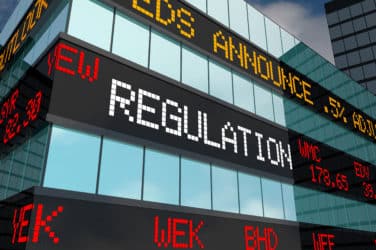

Northern Trust launched its blockchain-based Carbon Ecosystem in September 2024 and a year later the firm has partnered with Absolute Climate, the first independent quality assurance provider.
The Carbon Ecosystem platform is powered by Northern Trust Matrix Zenith, its digital assets platform to allow institutional buyers to buy digital carbon offsets created by a carbon reduction or sequestration project. These voluntary markets are mainly driven by corporates and financial institutions who buy carbon offsets to reduce emissions and meet their environmental targets and climate transition plans. The Northern Trust Carbon Ecosystem acts on instruction to record, transfer and settle digital carbon credits in its capacity as the designated custodian.
Justin Chapman, group head of strategic partnerships, digital assets and financial markets, at Northern Trust, told Markets Media: “We have published our carbon book and we have 20 projects. We had a good number of transactions on the other side, which we don’t publish in phase one, and we are really pleased with progress.”
The International Capital Market Association said in a report in October this year that voluntary carbon markets offer global reach and flexibility but have faced persistent credibility challenges on verifying projects and their carbon reduction claims due to the lack of standardisation.
“The voluntary carbon markets require a significant alignment of planets to become mainstream,” said ICMA.
In the voluntary carbon markets there are a number of registries, which set requirements for creating and issuing credits, and numerous third parties who verify the projects and the quality of carbon credits. Chapman explained that in carbon markets, the standards agency and the registrar have historically been the same and controlled the flow on their platform.
As a result, Northern Trust has partnered with Absolute Climate to align independent certification with a regulated system for issuing credits. Project developers using Absolute Climate’s monitoring, reporting, and verification (MRV) platform can record credits through the Northern Trust Carbon Ecosystem.
Peter Minor, chief executive of Absolute Climate, said in a statement: “Definitions of quality and governance standards should be developed independently from those issuing credits.”
Absolute Climate’s certification framework is designed to be registry-neutral and fully compatible with multiple platforms.
Chapman said: “This is a growing space and it has been quite difficult for MRVs to access the ecosystem because of the vertical stack within existing registries. We are open, which makes it much easier for firms to bolt into that environment.”
In addition, while a standard registry just records ownership interest, Northern Trust’s platform tokenizes the title. Chapman said this is a differentiator and that eventually, these digital carbon credits could be traded like any other financial commodity on a blockchain.
“We create the title on the digital asset itself which makes it fungible and transferable,” he said. “Registry updates and transaction movements are captured digitally through the ecosystem,which is a really big plus.”
In addition, verification can be performed digitally. For example, a device linked n ato North Sea oil well can record and trigger the creation of a carbon reduction credit as the CO2 is actually stored and removed from the environment in real time.
Northern Trust has created an automated end-to-end system that can revolutionize the carbon marketplace, compared to previous heavily manual processes, according to Chapman. As a result, the firm is starting to see registries wanting to move their back office onto the platform.
“This is analogous to financial services infrastructure and I think this is the market maturing,” said Chapman. “It is still early days, but we are definitely seeing the foundations of potentially allowing this market to scale and gain confidence with independent verification.”
Kinexys by J.P. Morgan, the bank’s blockchain business unit, has also launched an application on Kinexys Digital Assets, the firm’s multi-asset tokenization platform, to help tokenize global carbon credits at the registry layer.
“I think we have an advantage from a construct perspective, but I’m happy that the market is moving to better technology, which creates a much better landscape for buyers,” added Chapman.
He believes there is no reason why much more interoperable networks cannot be created to increase credibility, transparency and confidence.
“We will continue to look at any opportunity to help this ecosystem grow in a safe and sustainable way,” said Chapman.
ICMA said that voluntary markets may benefit from further progress on integrity and recognition to grow. The report added: “But in the near to medium term they will remain dependent on whether CORSIA [Carbon Offsetting and Reduction Scheme for International Aviation] moves to its planned second and mandatory phase,”
Compliance markets
In contrast to voluntary carbon markets, compliance carbon markets (CCMs) involve regulated carbon allowances that allow the emission of a specific amount of carbon dioxide. These markets are driven by regulatory frameworks that set mandatory emissions limits for certain industries and allow the purchase of carbon allowances to reduce effective emissions for those who may have exceeded these limits.
Compliance carbon markets are the dominant force with nearly $950bn of traded allowances in 2024, covering over a quarter of global emissions, according to ICMA. The report said these regulated systems, primarily structured around cap-and-trade, are expanding globally, led by the European Union Emissions Trading System (EU ETS), and China’s ETS.
Trading and risk management revenues linked to compliance markets present the wider market opportunity according to the report. Secondary trading related to compliance carbon market secondary trading occurs largely through futures and options, reflecting a sizable carbon derivative market.
ICMA explained that companies subject to carbon compliance programs can use carbon derivatives to meet their obligations and manage risks. Banks then buy allowances at auctions and sell forwards or futures to compliance entities that use allowance derivatives to hedge power forward sales, rather than buying allowances in auctions or via the spot market, as this is more capital efficient.
Traded value in regulated allowance systems reached about $950bn in 2024 according to ICMA, with the European Union ETS leading global activity. Secondary trading in the EU ETS €648bn was almost entirely, 99%, in futures with the rest in options and some residual spot activity according to the report.
“Secondary trading in CCMs is a significant growth opportunity with the multiplication of initiatives in key jurisdictions aiming to establish national compliance markets,” added ICMA. “These include in 2026 both Japan, Brazil and India, with other countries such as Turkey, Indonesia, Vietnam and Thailand also developing their own initiatives.”
As more jurisdictions establish compliance markets, ICMA said carbon derivatives and trading platforms are poised for substantial growth, attracting banks, investors, and other financial institutions.
Voluntary carbon markets do not offer comparable trading volumes, at just $535m in 2024, said the report. However, there is an active market largely focused on the airline offset market and there are several leading trading platforms in Europe, Asia and the USA offering both spot and derivative trading.
“It is important to note that some analysts project significant expansion of the VCM market with demand increasing from $7bn to $35bn by 2030 depending on the scenarios,” said ICMA.
Chapman admitted that carbon trading volumes are suppressed at the moment as the wider geopolitical landscape has created a challenge for the market over the last 12 months and there has ben a backlash against environmental, social and governance strategies.
However, he argued that the requirement for energy to power AI means that sustainability will remain critical.
“There are a lot of trends that are going to require us to manage our environment better, particularly with the tech evolution and power consumption,” he said.
This was shown on 28 October 2025 when authorities in Singapore announced they are advancing initiatives to support the development of high-integrity carbon markets.
These include the publication of voluntary carbon market guidance on how companies can use carbon credits as part of their decarbonisation plans and the introduction of a financial sector carbon market development grant. The Monetary Authority of Singapore (MAS)will set aside S$15m to support the establishment or expansion of financial institutions teams engaged in carbon-project financing, trading, insurance and related services.
Abigail Ng, chief sustainability officer of MAS, said in a statement: “High-integrity carbon markets are integral to financing the global transition, and financial institutions play a key role in bringing capital, innovation and scale to this space.”









